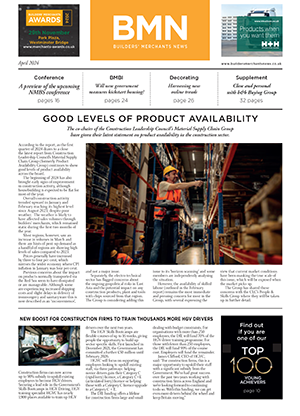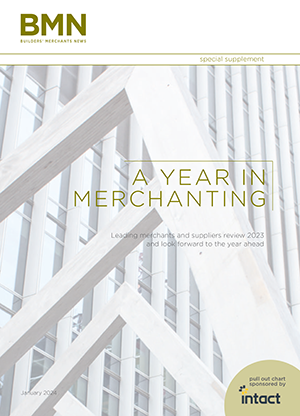What was true for the dinosaurs long ago remains inescapably true for those in business today - the key to success is the ability to adapt to changing circumstances.
The important thing, of course, is to be agile enough to adapt quickly, in human timescales rather than geological ones.
One of the most important changes taking place in the building services sector is subtle and progressive. However, the effects over time will be far-reaching and could result in a complete reshaping of our industry.
I am talking about the convergence of the traditional building services trades. It has been happening for at least a decade – perhaps longer – but recent developments have hastened the process.
The arrival of new materials and technologies are redefining the time-honoured skills required by our trades. For example, the emergence of advanced plastic pipework systems means that there is less reliance on traditional hot metal joining expertise.
The introduction of new technologies and approaches such as rainwater harvesting and solar energy, for example, open up new sectors that cut across traditional boundaries and require a combination of skills from different disciplines.
The emergence of the heat pump, and its entry into the mainstream as a major technology for both heating and cooling, is arguably the most important development in a generation.
The skills required to install and service heat pumps cut across conventional boundaries and traditional training programmes. If the technology were to be adopted as the default choice in the future, it will redefine the trades that have traditionally catered for heating and cooling in buildings.
The implications don’t stop at new skills sets and trade definitions. It will have an impact on the industry’s training framework, professional bodies and assessment procedures, too.
For our part in the supply sector, the changes require a constant reassessment of the mix of products we provide and the way we support them and our customers in the market.
We recently invested heavily in expanding our technical support team, to provide our major customers and business with advice on the rapidly expanding range of sustainable and renewable technologies coming onstream.
We have responded to the convergence between the building services and cooling trades by strategically dual-locating some Pipe Center and Climate Center trade counters within the same branches. The approach has been hugely successful and stimulated cross-over sales for both businesses that simply wouldn’t have happened if the operations had continued to trade separately.
On a wider front, Wolseley UK is well positioned to manage the new “cross discipline” approach emerging in the construction industry. All our component operations serving different sectors share a common logistics and business platform. This is already resulting in pioneering new ways of working, and the ability to act as a one-stop supplier to major contractors.
For those contemplating what these changes mean for their own business, there is really only one approach – embrace them. As someone once said, “When you are finished responding to change, you are finished.”
Scott Craig is sales and marketing director of Pipe Center and Climate Center







